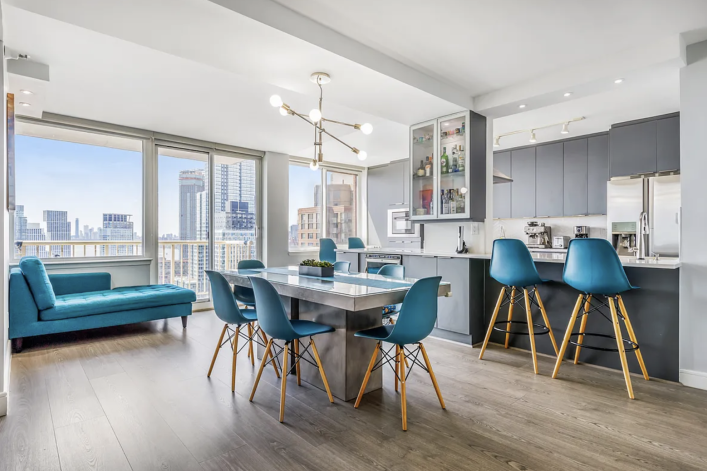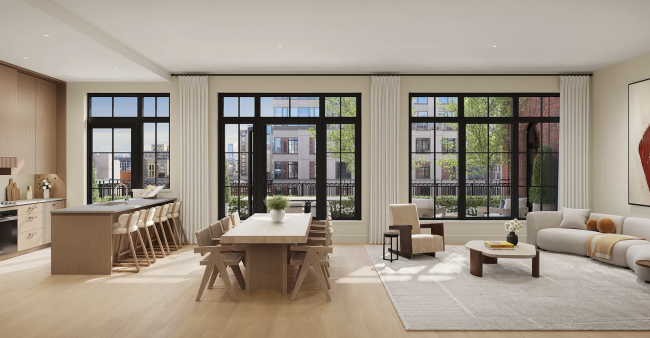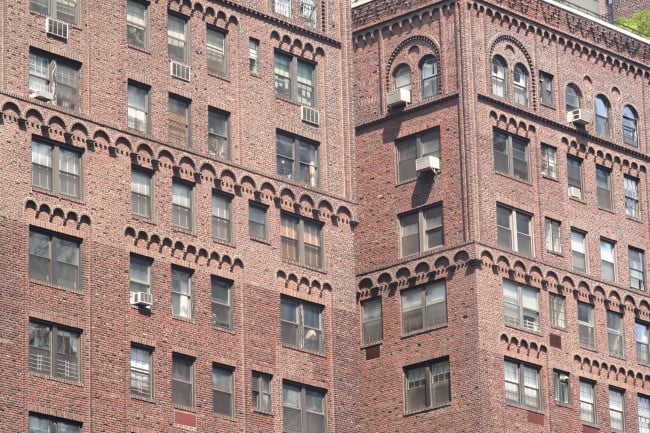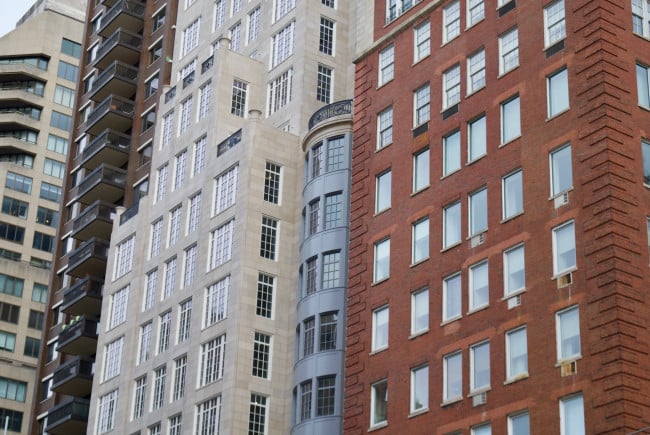What’s a condop? What do I need to know about buying there?
- Condops are mixed-use co-op buildings with commercial or non-residential space on the ground floor
- They allow sponsors to create a shareholder structure with the flexibility of a condo-style commercial space
- Mixed-use condos are more common these days, though Brooklyn Point is a recent condop development

This three-bedroom unit is currently on the market for $1.525 million at Citylights, a full-service condop on the Long Island City waterfront.
When you are hunting for an apartment in New York City, you may come across a listing for a condop, particularly if you are searching for sponsor co-ops. A condop is probably the most misunderstood type of NYC apartment, and while brokers often describe them as co-ops with condo rules, in reality, they are a little more complicated.
Here’s a more specific description: Condops are mixed-use co-op buildings with commercial or non-residential space on the ground floor. As a result, they will have multiple boards that separately govern the residential and commercial parts of the building.
Why NYC has condops
During the wave of co-op conversions in the 1980s, owners and developers were faced with a tax rule that capped earnings for co-op buildings from non-residential or commercial spaces at 20 percent of their income. If the amount went over 20 percent, the shareholders couldn’t take advantage of certain homeowner tax deductions.
To fix that, owners and developers divided their buildings. The commercial space was designated as one condo unit, while the entire residential section was considered another and was divided into co-operative shares. And so the condop was born.
[Editor's note: This article was previously published in June 2023. We are presenting it again with updated information for May 2025.]
Basically, condops allowed for the creation of co-ops while giving the sponsor the ability to own or rent the commercial spaces in the building with all the freedoms of condo-style ownership. Their unique structure makes them complex, typically consisting of three boards.
First is a condominium board, made up of representatives from both the residential co-op units and the commercial space. This board handles issues related to the building's general common elements, such as exterior repairs or major plumbing upgrades.
The second is a commercial board, which governs issues for the commercial units.
The third board is elected by the co-op members and deals with shareholder issues for residents' shared spaces, including common hallways or laundry rooms.
| What to know about buying or selling a condop in NYC | |
|---|---|
| Multiple boards add complexity |
|
| Buyers should do their due diligence |
|
| Financing and selling concerns |
|
What you need to know before buying a condop
Condops often have substantial and very profitable commercial spaces. As a result, disagreements often develop between the two distinct entities involved in condop governance, e.g., the residents and the owners of the commercial space, said Dean Roberts, a real estate attorney at Norris McLaughlin.
For example, the representatives of the ground-floor commercial space might resist having to pay for elevators they never use.
Then there's the issue of board representation. In one of Roberts' recent condop cases, the building was evenly split between a school dormitory and a private residential space.
“On the board, the school had three votes, while the residents had two. That means you’re pretty much at the mercy of the school," he said.
Roberts advised any prospective condop buyer to find out how well the boards function and whether they've been involved in any litigation, namely by asking the managing agent for intel and searching the building's financial statements for clues.
It is also important to determine if they are allocating expenses properly. Is something a condo expense, a co-op expense, or a commercial expense? There can be gray areas as to which entity is responsible for different capital improvements.
Real estate attorney Adam Stone, a partner at The Stone Law Firm, advised reviewing both the co-op and condo financial statements to find out what percentage of the condo’s common charges is assigned to the co-op and whether the condo is up to date on its financial contributions.
If you're not seeing enough homes for sale in your price range or target neighborhood—and/or you'd like to avoid a bidding war—consider expanding your search to "off-market" listings. NYC real estate brokerage The Agency, a Brick Underground partner, uses technology to mine public records and identify owners who may be ready to sell, meaning you can meet and deal with owners before their homes hit the market. Click here to learn more.
Who is the right buyer for a condop?
The initial question is whether you can be comfortable with the unique arrangement of condops and be willing to live in a mixed-use building.
Sometimes, a condop can make it easier to become an owner. Abra Nicolle Nowitz, a broker at Corcoran, pointed to a retired couple who was looking for a one bedroom in NYC and fell short of the post-closing liquidity required of a co-op. She said a condop in Midtown East offered the flexibility they needed. The couple also planned to use money from their IRA for their down payment.
"It was the price point they were looking for and the financial package that would work for them,” Nowitz said
Know, too, that you're unlikely to see many new condop buildings because co-ops generally trade for less than condos, by about 15 percent, so developers are reluctant to go this route. Mixed-use condo buildings are more common, although Brooklyn Point is an example of a recent development that's designated as a condop and built on leased rather than owned land. (Read more about the ins and outs of buying in a land-leased building.)
The Agency's Off-Market Advantage
Discover off-market properties in your dream neighborhood that perfectly suit your needs and budget. Meet and deal with sellers before their apartment hits the market.


Let The Agency's off-market team give you exclusive access to apartments in your price range and desired neighborhood that no one else has seen. More options, less competition, no bidding wars.
How to find a condop
Most of NYC’s major broker firms and listing sites don’t have a filter for you to search for (or screen out) a condop. You can, however, do a keyword search for "condop" on Streeteasy, which turned up 87 apartments, the bulk of which were in Manhattan.
Otherwise, buyers typically come across a condop listing while looking for co-ops or condos and reading the fine print.
How to finance or sell a condop
Lenders treat condops like co-ops, said Keith Furer, a mortgage banker at GuardHill Financial. That means a bank will require a slightly bigger down payment than it would for a condo.
“Lenders will want to look at both the co-op part and condo part financials, along with all the other standard documentation that they look at when underwriting a project. Pretty much a similar type of underwriting scrutiny if just a co-op or a condo,” Furer said.
Even so, it’s important to work with a lender who understands what a condop is. Furer said most out-of-state lenders and loan officers don’t even understand what a co-op is. “I can’t imagine the majority of them have ever even heard of a condop or have any clue what it is,” he said.
If you are selling a condop, you should be prepared to answer a lot of buyer questions. Specifically, that means providing information about how the boards operate.
Although brokers often say condops have more liberal policies, they can be every bit as tough on sublets and sales as any stand-alone co-op. Your due diligence will be important because every building is unique.
—Earlier versions of this article contained reporting and writing by Marjorie Cohen and Emily Myers.
You Might Also Like





























